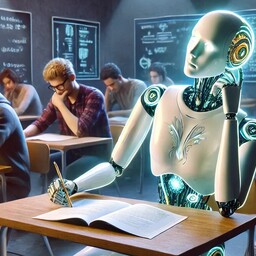AI makes both human-like and less human-like mistakes. People also make mistakes in different ways. For example, both machines and humans need time to solve more complex tasks. Both can make generalizations even if they have not learned the answer to a specific question before.
A key difference is that humans are better at distinguishing whether a statement comes from memory or is made up. AI sometimes makes mistakes that humans rarely make.
Meelis Kull also spoke about the transparency of AI systems. When AI makes decisions, we would like to know why a particular decision was made.
Think before you speak. One major problem is hallucinations. This means the model confidently gives an answer that is actually wrong. For example, when asked "Who is Friedebert Luts?", the model answered that he was a person from 1886–1956. In reality, such a person never existed.
Models construct answers piece by piece. For each part, you can see how confident the model was. However, this does not make the answer fully reliable.
People and models are similar. When time is limited, errors become more likely. Both humans and models should think before speaking.
Meelis Kull recommends breaking tasks into smaller parts when using a model. For example, you could specify "answer in detail and step by step". This helps the model make fewer mistakes.
Meelis Kull heads Estonia's AI excellence center. The center studies how AI could work better with small languages. For example, with Livonian words, the model may make mistakes since it has not encountered them before.
The ideal would be for the model to say, "I did not actually know this word." This would help build trust. People admit when they don't know an answer, and this builds trust.
Meelis Kull hopes that in the future models will provide better explanations. Currently, the knowledge of models is limited, but humanity's knowledge is greater. Machines sometimes make mistakes that humans do not.

